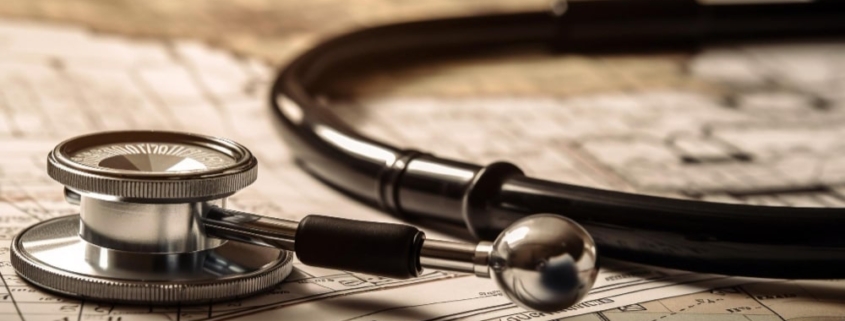Overcoming the Challenges in Healthcare Transcription Services
In the fast-paced world of healthcare, accurate documentation is crucial. Healthcare transcription services play a vital role in converting audio recordings of patient encounters into written text, ensuring that essential medical information is properly documented. However, this seemingly straightforward task comes with its own set of challenges that require careful navigation and expertise.
This blog post aims to delve into these challenges and shed some light on possible solutions.
The Main Challenges of Providing Healthcare Transcription Services
- Accuracy and Quality Control
One of the foremost challenges in healthcare transcription services is maintaining a high level of accuracy. Medical terminology is complex and precise, leaving no room for error. Transcriptionists must possess a deep understanding of medical jargon, procedures, and diagnoses to accurately transcribe healthcare documentation. Quality control measures are essential to ensure that the final transcripts are error-free and reliable for medical professionals to rely on.
- Adherence to Privacy Regulations
Patient confidentiality is sacrosanct in healthcare, and transcription services must adhere to stringent privacy regulations such as the Health Insurance Portability and Accountability Act (HIPAA). Ensuring that sensitive patient information remains secure and confidential throughout the transcription process presents a significant challenge. Transcription providers must implement robust security measures and train their staff to handle patient data with the utmost care and compliance.
- Turnaround Time and Efficiency
In the dynamic healthcare environment, speed is of the essence. Healthcare transcription services are often under pressure to deliver accurate transcripts within tight deadlines. Balancing efficiency with accuracy is a constant challenge, especially when dealing with a high volume of transcription requests. Meeting the demands for quick turnaround times without compromising on quality requires streamlined workflows and efficient processes.
- Technological Integration and Upgrades
The landscape of healthcare technology is continually evolving, and transcription services must stay abreast of these advancements. Integrating with electronic health record (EHR) systems, voice recognition software, and other technological tools presents its own set of challenges. Additionally, keeping transcription platforms and software up to date while ensuring seamless interoperability with healthcare systems requires ongoing attention and investment.
- Diverse Audio Quality and Accents
Audio recordings in healthcare settings can vary widely in terms of quality and clarity. Transcriptionists often encounter recordings with background noise, overlapping dialogue, or accented speech, which can pose significant challenges to accurate transcription. Navigating through these diverse audio qualities while maintaining accuracy demands a high level of concentration and adaptability.
In conclusion, providing healthcare transcription services is a multifaceted endeavour that requires a deep understanding of medical terminology, stringent adherence to privacy regulations, efficient workflows, technological prowess, and adaptability to diverse audio challenges. While the challenges are formidable, they are not insurmountable. With a dedicated focus on quality, ongoing training, and a commitment to excellence, healthcare transcription services can rise to meet the complex demands of the healthcare industry, ultimately contributing to the seamless delivery of patient care.
The Multifaceted Skills Behind Healthcare Transcriptions
To provide accurate healthcare transcriptions, a range of skills are required. These skills not only ensure the quality of the transcriptions but also contribute to the overall efficiency of healthcare services.
- Typing Excellence
Fast and accurate typing skills are crucial for medical transcriptionists. They need to transcribe medical reports quickly without compromising on accuracy. This requires a high level of proficiency with computer systems and transcription software.
- Medical Knowledge
Medical transcriptionists must have a solid understanding of medical terminology, procedures, and pharmacology. This knowledge is necessary to accurately transcribe medical reports and understand the context of the information being dictated.
- Excellent Listening Skills
Given that medical transcriptionists work with audio files, excellent listening skills are a must. They need to accurately understand dictations, even when dealing with different accents, speech rates, or background noises.
- Grammar and Punctuation
Medical transcriptionists must have a strong grasp of grammar and punctuation. This is essential for producing clear and accurate transcriptions that effectively communicate the patient’s medical history and treatment.
- Adaptability
The medical industry is constantly evolving, with new procedures and services being introduced regularly. Medical transcriptionists need to stay updated with these changes and adapt their skills accordingly.
- Confidentiality
Given the sensitive nature of medical data, medical transcriptionists must uphold strict confidentiality standards. They need to ensure that patient information is securely handled and protected at all times.
- Independent Working
The role of a medical transcriptionist is often solitary, requiring the ability to work independently. They must be self-motivated and able to manage their time effectively to meet deadlines.
These skills, combined with continuous learning and development, can help medical transcriptionists excel in their role and contribute significantly to the healthcare industry.
TW Languages| Your Pathway to Clear and Accurate Healthcare Transcription services
TW Languages has an excellent team of translators, ready to quickly respond to your requirements. Our translators are not just professional in-country translators, they’re also qualified and experienced in your particular field. Our medical translators are fully aware that accuracy is vital, particularly when translating instructions for medical professionals or patients, where a lack of clarity can have very serious consequences.
We offer healthcare translation services that cover a wide range of documents, including:
- Advertising materials and brand promotion
- Clinical study and research documentation
- Equipment manuals and instructions for use (IFU)
- Labels and packaging text
- Medical charts
- Medical insurance documents
- Medical records
- Patents
- Patient consent documentation
- Patient diaries
- Patient outreach documents
- Technical data sheets
- Training documents and records
Enhance Patient Care with TW Language’s Medical Translation Solutions – Get Started Now!



